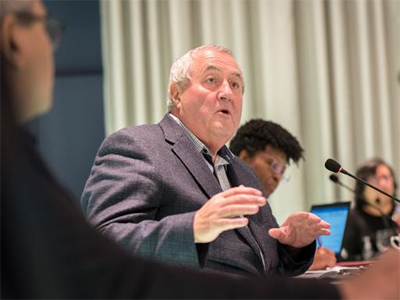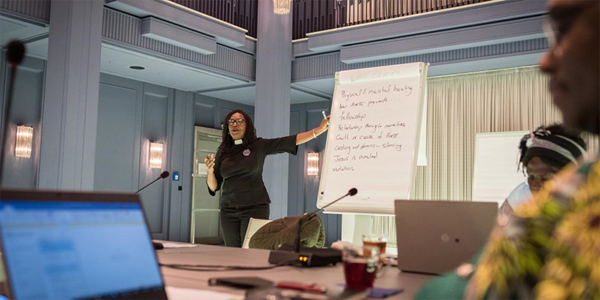WCC acting general secretary Rev. Prof. Dr Ioan Sauca situates the consultation in what has been a deeply challenging time of global pandemic, but also sees an opportunity to take stock and learn from the lived experiences of people and churches around the globe in view of the upcoming assembly.
The World Council of Churches is an ecumenical partner supported by the Interdenominational Cooperation Fund apportionment, which enables United Methodists to share a presence and a voice in the activities of several national and worldwide ecumenical organizations.
“The COVID-19 pandemic has highlighted the critical role of churches on health in all parts of the world, and we see that it has increased churches’ awareness and interest in health matters,” Sauca reflected.

“We find ourselves at a point in time now, when we need to reflect on how we can strengthen and upscale the ecumenical health response,” Sauca continued and went on to stress the importance of taking the perspective of service as a starting point moving forward.
“As the WCC, we wish to serve the churches in this time and support them in their ministry, so that the current ‘health awakening’ is not lost but strengthened. As people of faith, even in this time of crisis and tragedy, we wish to see what from this experience we can harness and what positive change we can help inspire through our ministry in the future,” he said.
With the upcoming assembly in Karlsruhe less than one year away, a key objective of the consultation is to reflect on ways in which the churches’ health ministry can be consolidated as the ecumenical movement journeys together in the future.
As the world continues to grapple with the impact of the COVID-19 pandemic, churches have been widely recognized as having much to offer, not least in view of their experiences from past pandemics and epidemics such as HIV and AIDS, and the Ebola health crises.
“I believe we need to review what resources we already have available, and to learn from the lived experiences of people and churches in our different regions,” says Annie Solis, who joins the consultation from the Methodist Church of Peru and who has formerly been part of the WCC’s engagement for youth in the ecumenical movement.
“But in the future, we should also advocate in and among the churches, to foster engagement for health and healing and position it also as a part of mission,” Solis adds.
Christoph Benn, director of Global Health Diplomacy at the Joep Lange Institute continues: “We need to think carefully now, how to shape a future that is as inspiring and effective for the churches in the years to come as what has been there in the past. Because the churches absolutely need to be a voice at the table, of the WHO and other international bodies in the future.”
“We need faith communities and faith-based organizations in this work. The COVID-19 pandemic has taught us this. We need faith communities, and not just as a complement, but as actors in their own right,” Dr. Agnes Abuom said.
World Council of Churches website
One of seven apportioned giving opportunities of The United Methodist Church, the Interdenominational Cooperation Fund enables United Methodists to share a presence and a voice in the activities of several national and worldwide ecumenical organizations. Please encourage your leaders and congregations to support the Interdenominational Cooperation Fund apportionment at 100 percent.





